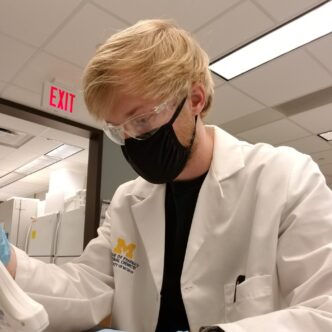Troy Halseth

Apolipoprotein Mimetic Peptides for the Treatment of Niemann-Pick Diseases
Summary
Niemann-Pick Disease types A (NPA) and B (NPB) (together referred to as acid sphingomyelinase deficiency [ASMD]) are rare, fatal disorders of sphingomyelin metabolism with no FDA-approved treatments. ASMD occurs when an enzyme called acid sphingomyelinase is not able to efficiently breakdown a lipid called sphingomyelin. When this lipid builds up inside cells throughout the body, it compromises the integrity of the cell membrane and the ability of our cells to respond to stress. The clinical manifestations of ASMD are quite severe, as patients experience enlargement of peripheral organs (mainly the liver and spleen) and, in the worst cases, neurological deterioration, resulting in death in early childhood. Enzyme replacement and gene therapy have been studied for the treatment of ASMD, but these strategies are unable to get into the brain and address the neurological phenotypes without direct administration to the central nervous system. Because of this, it is important to investigate additional strategies for the treatment of ASMD. Our lab has studied several therapeutics that mimic high-density lipoproteins, which are nanoparticles found naturally in the body responsible for transporting excess lipids and cholesterol from throughout the body back to the liver to be metabolized. We have tested these therapies in cells from patients with ASMD and discovered their ability to remove excess sphingomyelin from these cells. This represents a new therapeutic strategy for addressing the sphingomyelin accumulation resulting from ASMD and the associated disease pathologies. We have also noted the ability of this treatment to mobilize sphingomyelin into circulation following administration in a mouse model of ASMD. Based on these findings, the potential of apolipoprotein mimetics as a therapeutic strategy for ASMD warrants further investigation.
Receiving a predoctoral fellowship from the PhRMA Foundation has been a tremendous benefit because it has connected me to other fellowship recipients and enabled me to spend more time working on experiments for my dissertation project.
